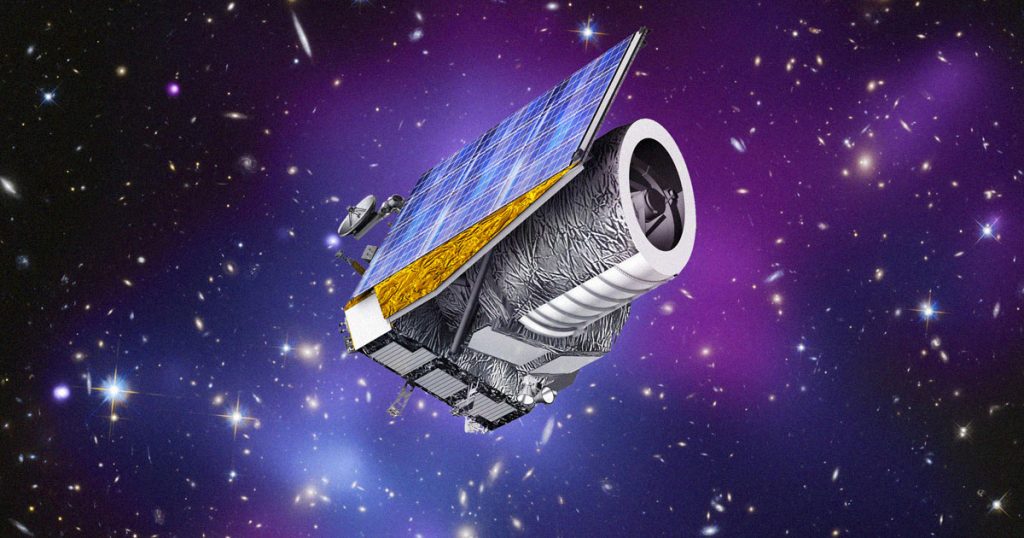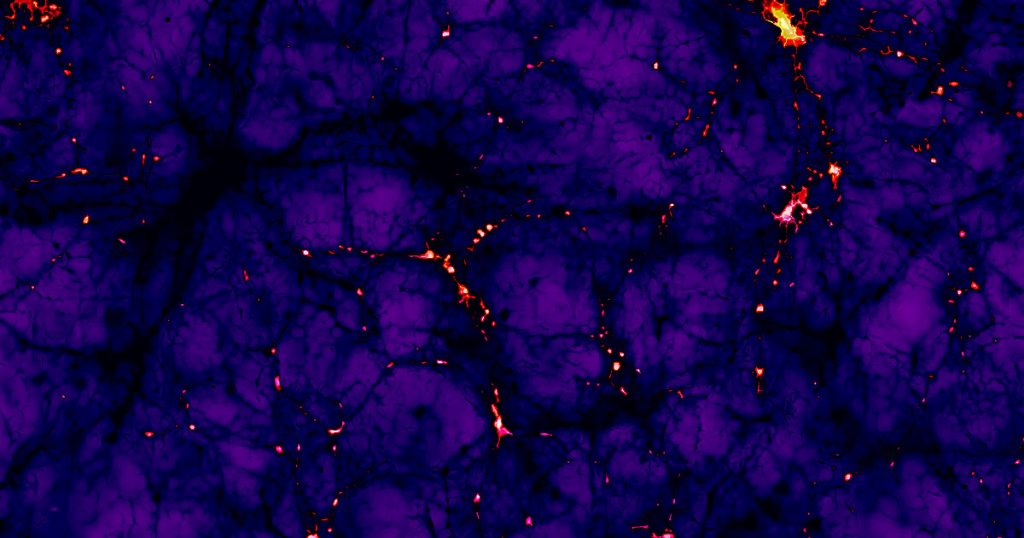Excitement is brimming in Europe as scientists gear up for the launch of the European Space Agency’s (ESA) Euclid spacecraft, a dark matter-hunting telescope that researchers hope will soon shed some proverbial light on one of the more mysterious aspects of the universe. Dark energy and dark matter are essential to our understanding of the cosmos. As the prevailing theory goes, dark energy is the force behind the acceleration of the universe’s expansion, while dark matter — which is believed to make up a whopping 80 percent of the mass of the universe — is a tethering force that keeps the cosmos organized and intact.
Dark matter also emits no light or energy and can’t be detected by conventional sensors, making it extremely elusive to scientists. That’s why Euclid is designed to create a detailed map of the universe to indirectly infer its properties. “We cannot say we understand the universe if the nature of these dark components remains a mystery,” Professor Andy Taylor, an astrophysicist at Edinburgh University, told The Guardian. “That is why Euclid is so important.” But it’s not just the nature of the mission that makes Euclid so exciting — it’s also the fact that it’s finally happening at all.

As The Guardian reports, the roughly $850 million craft was actually slated to launch last year on a Russian Soyuz rocket. Russia’s invasion of Ukraine, however, severed cooperative ties between Russian space agency Roscosmos and the ESA before Euclid could be launched. Now, after a long wait, Euclid is scheduled to launch on July 1 on one of SpaceX’s Falcon 9 rockets instead.
Once in the sky, the researchers on the ground are hoping that the telescope’s ability to track how galaxy clusters and other celestial objects cause light to curve on its way to Earth will offer them a unique glimpse into the workings of dark matter.

“Euclid has the resolving power of the Hubble space telescope but will be able to survey a third of the night sky at the same time,” Stephen Wilkins, a Sussex University astronomer, told The Guardian, “so it will give us an incredibly detailed map of the heavens.” “The point of Euclid is really to get the data that will allow us to start discriminating between which of the different ideas we have about the dark universe,” Taylor added. “Hopefully that will help us understand what fundamentally is really going on in the cosmos around us.”
With its launch imminent, the Euclid spacecraft represents a significant step forward in unraveling the mysteries of dark matter. The anticipation among scientists and astronomers is palpable as they eagerly await the invaluable data that Euclid will provide, which may hold the key to unlocking the secrets of the universe’s hidden forces.


